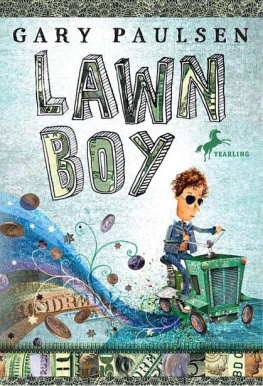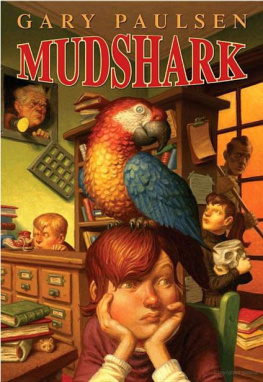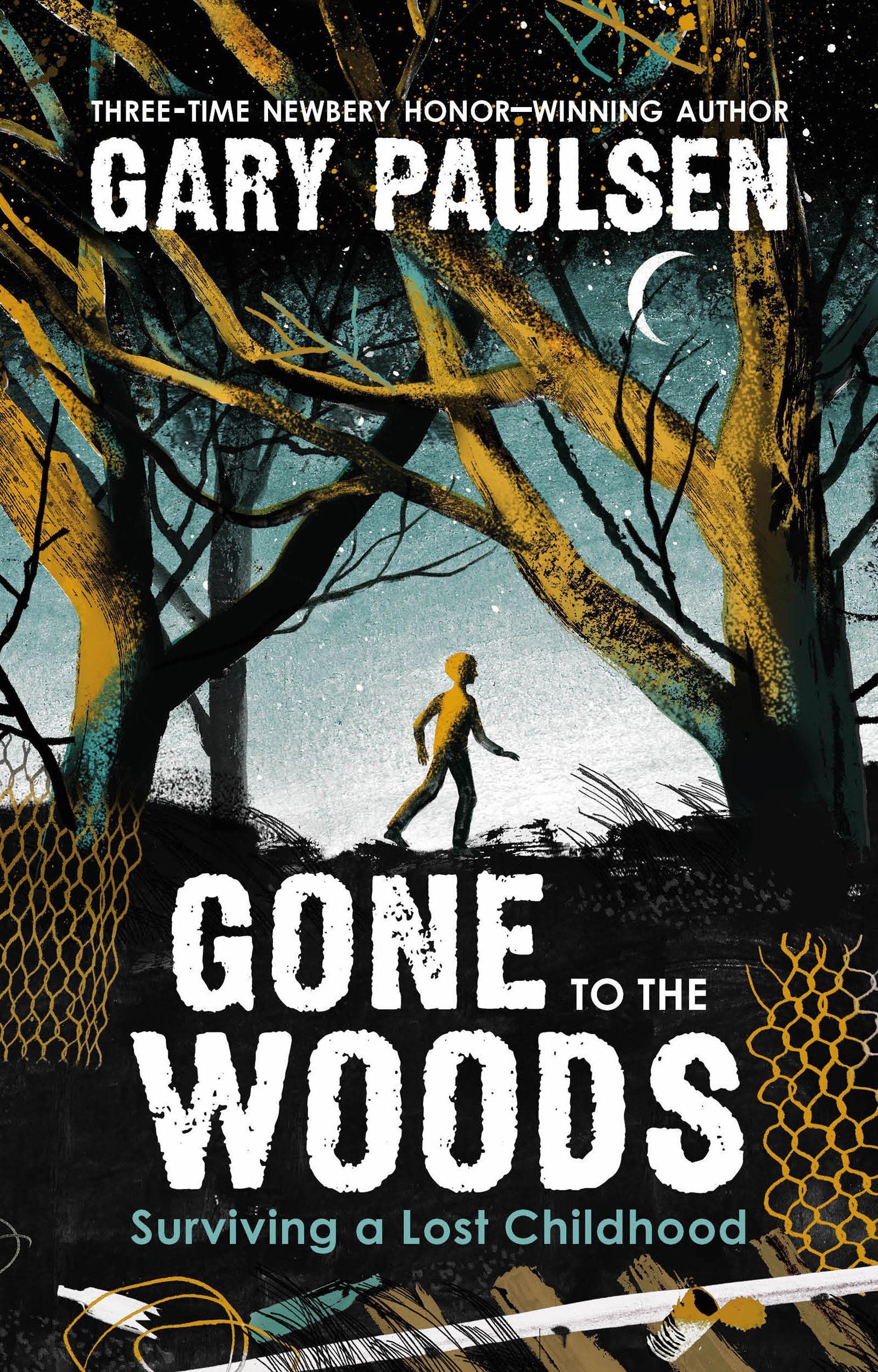The author and publisher have provided this e-book to you for your personal use only. You may not make this e-book publicly available in any way. Copyright infringement is against the law. If you believe the copy of this e-book you are reading infringes on the authors copyright, please notify the publisher at: us.macmillanusa.com/piracy.
This book can only be dedicated to my new editor, Wes Adams, and the whole team at FSG and Macmillan. How joyful after all this time to have finally found each other.
1944
He was not literally an orphan, but he was a lost child. He was born in 1939 and his father was in the armya low-level officer on General George S. Pattons staff who was gone for the whole of the Second World Warand they would not meet each other until he was seven years old. When he was four, his mother took himdragged might be a better wordto Chicago, where she went to work in a munitions plant making twenty-millimeter cannon shells. She had grown up on a small northern Minnesota farm, wearing handsewn dresses made out of flour sacks and earning, if she was lucky, twenty-five cents a week. She now had a seemingly endless supply of pocket money from her steady hourly wage but was not even remotely prepared to resist the temptations of the big city. Caught up in a life of heavy drinking and wild partying, she no longer had the time or attention to raise the boy right. She didnt even celebrate his birthday.
Word of her newfound lifestyle found its way back to a small army of the boys relatives in northern Minnesota. His grandmother was working as a cook for a road crew of old menalmost all the young men had been drafted for the warwho were building a road into Canada. A road connecting the United States to the interior of Canadian bush country was thought to be necessary in case the war dragged on or the U.S. was attacked. At that time, no one was remotely certain that America was safe from invasion. The Japanese surprise attack on the Pacific Fleet at Pearl Harbor in Hawaii and, six months later, their invasion of the Aleutian Islands of Alaska were both still recent and frightening memories.
Grandmother was critical, then concerned, and finally horrified after learning that the boys mother was not only going out more than was good for her, but was also taking him with her to bars, dressed in a small army uniform to sing on tabletops: Mares eat oats and does eat oats and little lambs eat ivy. A kidll eat ivy, too, wouldnt you? Except his five-year-old version came out: Marezeedotes. Andoezeedotes. Anlittlelamzeedivy. Akidleedivytoowoodenyou? The silly song he sang meant more attention for her.
He thought it was wonderful fun, because the men who wanted to meet his mothera blue-eyed blonde who turned heads wherever she wentshowered him with Coca-Cola and candy bars and fried chicken and hamburgers, all of which were hard to get because of strict wartime food rationing. He was, at age five, becoming something of a celebrity in the beer joints near the war plant.
Despite the fact that time is, of course, a constant, he learned it is differently paced at various points in life. When youre old, the years race by, but when youre young, very young, days and weeks seem to crawl and even stop. The period he spent working the bars in Chicago, singing to draw men for his mother, lasted only a month or so, but it seemed a forever way of life before his grandmothernow past horrified and well into scandalizedarranged to end it and save him from a life, she felt, of degradation and waste.
The way she solved this problem said worlds about how the rest of his life would go. Her way of thinking taught him, early on, to deal with problems in a really practical, simple way: If it doesnt work Here, go over There.
His grandmother showed him this lesson the first time that summer in Chicago. His life wasnt working well Here, she thought, and she had an astonishing number of relatives available There, on farms in the northern part of Minnesota, not to mention that she herself was available to take him where she was, in the southern Canadian bush cooking for a road crew, living on a cot in a cook-shack trailer.
Simple. Problem solved. Get him out of the clutches of the fleshpots in the big city and send him to stay, in turn, on one of the numerous family farms she found available and, eventually, with her in the trailer in the cook camp itself. She ordered his mother in a short and tersely worded letter to put him on a train in Chicago.
And his mother obeyed. She dropped him off at the train station to make the four-hundred-mile run to Minneapolis to connect to a different, slower north-woods train that would take him north another four hundred or so miles to International Falls, Minnesota, on the Canadian border, where he would be met by a total stranger to take him the final rough distance to the first farm his grandmother had selected.
A five-year-old child. Completely and totally alone.
He made this trip during the height of wartime, when masses of people were moving around the world, across the United States; vast, desperate herds of soldiers and civilians shifting from city to city, coast to coastgoing to the war, coming from the war, fighting in the war. Air travelsimple two-motor prop planes with limited altitude or distance abilitywas virtually nonexistent for the average citizen, and since it was nearly impossible to buy gasoline or tires or oil, which were strictly rationed for the war effort, traveling any distance by car was equally out of reach.
But railroad tracks went everywhere, which meant that anybody who wanted to move across any real distance traveled by train. Consequently, every train, no matter the day or the destination or the hour, was always, always packed with people. Short trips, long trips, slow hauls, fast haulsit didnt matter. If you were fortunate enough to find spacebecause the military had seating priorityyou went by train.
His mother took him to the station in Chicago, carrying his small cardboard suitcase. She pinned a note to the chest of his faded corduroy jacket scribbled with his name and destination, shoved a five-dollar bill in his pocket, hugged him briefly, and handed him over to a conductor. He was a kindly-looking older man wearing Ben Franklin glasses and holding a silver hand punch to make holes in tickets, who assured her that the boy would be carefully watched. As soon as his mothers back was turned, he jammed the boy in a seat between two wounded soldiers coming home to recuperate, and disappearedhe would not be seen again for the whole trip.
The boy was, of course, in awe of the soldiers and wanted to ask them many questions: Had they killed any Germans or Japanese? Did they know his father? Where were their rifles? But they slept, perhaps drugged unconscious by painkillers, the entire journey from Chicago to Minneapolis. He had to satisfy his curiosity about them by merely peeking at the bloodstains seeping through their bandages.
















